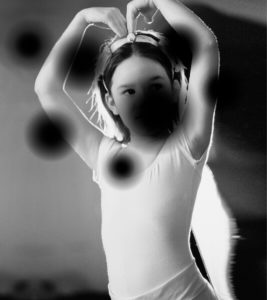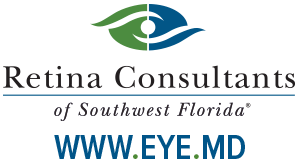Diabetic Retinopathy
Disease of the Retina/Vitreous: Diabetic Retinopathy
What is Diabetic Retinopathy?
Diabetic Retinopathy is a potentially blinding complication of diabetes that damages the eye’s retina, which is the lining at the back of the eye that is responsible for vision. The disease affects half of all Americans diagnosed with diabetes. You may not notice any changes in your vision initially, because early symptoms can be subtle, and tend to get worse over the years. With proper treatment, however, people with the advanced form of diabetic retinopathy have a 90 percent chance of saving their vision.
There are two forms of Diabetic Retinopathy
- Non-proliferative Diabetic Retinopathy – This occurs when tiny retinal blood vessels are damaged by diabetes and begin to leak fluid or blood. If this leakage is in the macula, the central vision part of the retina, the macula swells and causes vision loss.
- Proliferative Diabetic Retinopathy – New, but fragile blood vessels grow along the retina and in the clear, gel-like vitreous that fills the inside of the eye. Without timely treatment, these new blood vessels can bleed, scar, cloud vision, and destroy the retina. Proliferative diabetic retinopathy can affect both central and peripheral (side) vision and may cause severe vision loss.
PDRNPDRMacular Edema-Ischemia
Video: Proliferative Diabetic Retinopathy
Non-Proliferative Diabetic Retinopathy
Video: Macular Edema-Ischemia
Who is at Risk for Diabetic Retinopathy?
Who is at Risk for Diabetic Retinopathy?
Anyone with diabetes. The longer someone has diabetes, the more likely he or she will get diabetic retinopathy. During pregnancy, diabetic retinopathy also may be a problem for women with diabetes. That’s why it is recommended that all pregnant women with diabetes have dilated eye examinations each trimester to protect their vision.
Diabetics also are at risk for other non-diabetic eye diseases. Studies show that you are twice as likely to get a cataract (clouding of the lens) as a non-diabetic. Cataracts develop at an earlier age in diabetics. Diabetics are nearly twice as likely to develop glaucoma (high eye pressure disease) as other adults.
What are the Symptoms of Diabetic Retinopathy?
What are the Symptoms of Diabetic Retinopathy?
 Often there aren’t any in the early stages of the disease. Vision may not change until diabetic retinopathy becomes advanced. Significant diabetic retinal bleeding and swelling will produce loss of vision, making it difficult to do things such as read and drive. Some people report that variable vision can occur with poor control of diabetes. Blurred vision may occur when the macula swells from the leaking fluid (macular edema). Bleeding can produce spots in vision, as well as streaks or severe visual loss (retinal hemorrhage).
Often there aren’t any in the early stages of the disease. Vision may not change until diabetic retinopathy becomes advanced. Significant diabetic retinal bleeding and swelling will produce loss of vision, making it difficult to do things such as read and drive. Some people report that variable vision can occur with poor control of diabetes. Blurred vision may occur when the macula swells from the leaking fluid (macular edema). Bleeding can produce spots in vision, as well as streaks or severe visual loss (retinal hemorrhage).
If you notice any new or sudden symptoms, you should notify your eye doctor. These symptoms may include spots, cobwebs, hair-like strands in front of your eyes, decreased vision, blurred vision, shadows or a dark curtain in your vision, as well as visual distortion and severe pain.
How is Diabetic Retinopathy Detected?
How is Diabetic Retinopathy Detected?
 Diabetics should have a dilated eye exam at least once a year. Dilating (or enlarging) the pupils allows your eye doctor to see the retina and structure inside the eye to check for diabetic damage.
Diabetics should have a dilated eye exam at least once a year. Dilating (or enlarging) the pupils allows your eye doctor to see the retina and structure inside the eye to check for diabetic damage.
You may need to have specialized testing. Retinal (fundus) pictures are often taken. Fluorescein angiography may be necessary. In this test, a diagnostic drug called fluorescein is injected into a vein in your arm. Retinal pictures are then taken as the fluorescein passes through the blood vessels in the retina. These photos help your eye care doctor find the leaking blood vessels.
Sometimes other tests, such as sound wave testing (ultrasonography) or OCT (optical coherent tomography) may be required to evaluate the eye.
Video: OCT
Video: Fluorescein Angiography
What are the Treatment Options?
What are the Treatment Options?
Your retina doctor may suggest laser surgery in which a precise laser light beam is aimed onto the retina to shrink the abnormal vessels or treat leaking vessels. Laser surgery has been proven to reduce the risk of severe vision loss from diabetic retinopathy by 60 percent.
- For Macular Edema (swelling), – a precise beam of laser light is aimed onto the weak, damaged blood vessels to seal them to try to stop them from leaking blood and fluid.
- For Proliferative Diabetic Retinopathy, – a precise beam of laser light is used to try to inhibit the abnormal new vessel growth.
Laser surgery for diabetic retinopathy is a short procedure that is performed in the offices of Retina Consultants of Southwest Florida. Although the patient may go home the same day, a follow-up visit is necessary. More than one treatment may be necessary. Laser surgery may not restore vision that has already been lost. The major value of the treatment is that it may prevent further vision loss.
Video: Laser Treatment for Diabetic Retinopathy
Video: Eye Injection for Diabetic Retinopathy
When is Non-Laser Surgery Necessary?
When is Non-Laser Surgery Necessary?
Laser treatment may not be an effective option if you have problems such as significant bleeding or scar tissue. Your retina doctor may recommend an operation called a “vitrectomy.” A vitrectomy is a surgical procedure done in an operating room. During a vitrectomy, the blood, scar tissue and vitreous are removed and replaced with a clear solution. Laser also may be performed. The vitreous is mostly water, so you will notice no change between the clear solution and the normal vitreous. Surgery is not always needed with all vitreous hemorrhages. Instead, your retina doctor may wait several weeks or months to allow the blood to clear on its own.
Video: Vitrectomy
Video: Vitreous Hemorrhage
Video: Ultrasound
What You Can Do to Protect Your Vision
What You Can Do to Protect Your Vision
The most important thing you can do to prevent complications of diabetes and diabetic retinopathy is to regularly monitor and control your blood sugar. Optimal control of blood sugar levels slows the onset and progression of diabetic retinopathy and lessens the need for laser surgery. And, of course, everyone with diabetes should have a dilated eye examination at least once a year. Early detection and treatment, when indicated, is the best way to prevent vision loss.
Making the Most of Your Remaining Vision
Making the Most of Your Remaining Vision
Early detection and treatment may reduce the loss of vision from Diabetic Retinopathy. However, if some loss of vision should occur, it doesn’t have to rob you of life’s simplest pleasures if you learn how to use your remaining eyesight to see your best. Low vision aids, special lenses, or electronic systems and training can maximize your ability to read and perform other activities.
The Low Vision Rehabilitation Center of Retina Consultants of Southwest Florida can give you more information about the training and devices available.
Learn more about Diabetic Retinopathy
Learn more about Diabetic Retinopathy
Non-Proliferative Diabetic Retinopathy
Proliferative Diabetic Retinopathy

 Often there aren’t any in the early stages of the disease. Vision may not change until diabetic retinopathy becomes advanced. Significant diabetic retinal bleeding and swelling will produce loss of vision, making it difficult to do things such as read and drive. Some people report that variable vision can occur with poor control of diabetes. Blurred vision may occur when the macula swells from the leaking fluid (macular edema). Bleeding can produce spots in vision, as well as streaks or severe visual loss (retinal hemorrhage).
Often there aren’t any in the early stages of the disease. Vision may not change until diabetic retinopathy becomes advanced. Significant diabetic retinal bleeding and swelling will produce loss of vision, making it difficult to do things such as read and drive. Some people report that variable vision can occur with poor control of diabetes. Blurred vision may occur when the macula swells from the leaking fluid (macular edema). Bleeding can produce spots in vision, as well as streaks or severe visual loss (retinal hemorrhage). Diabetics should have a dilated eye exam at least once a year. Dilating (or enlarging) the pupils allows your eye doctor to see the retina and structure inside the eye to check for diabetic damage.
Diabetics should have a dilated eye exam at least once a year. Dilating (or enlarging) the pupils allows your eye doctor to see the retina and structure inside the eye to check for diabetic damage.